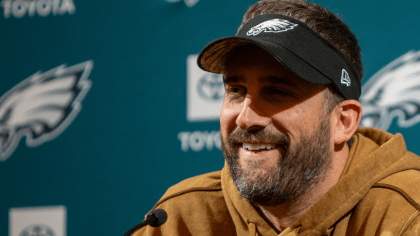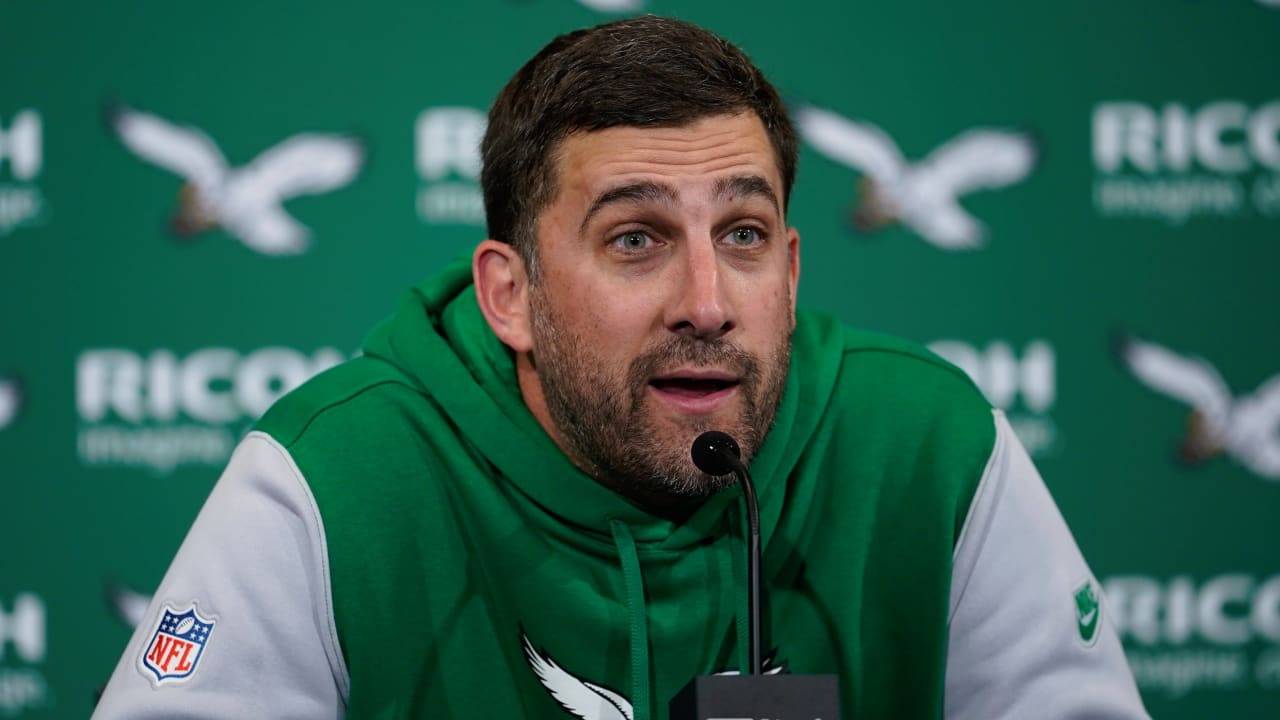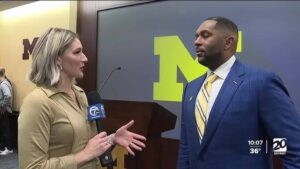
Vic Fangio will join the Philadelphia Eagles following his unexpected release from the Miami Dolphins.
Vic Fangio’s entrance into the coaching staff of the Miami Dolphins, where he assumed the role of defensive coordinator under the leadership of Mike McDaniel, was driven by the Dolphins’ specific need for a seasoned and skilled coach to oversee the defensive aspect of the game. The decision to bring Fangio on board reflected the team’s strategic approach, considering McDaniel’s offensive focus. However, the anticipated success of this coaching partnership did not materialize as expected, prompting reports of a mutual agreement between Fangio and the Dolphins to part ways.

Despite Fangio’s extensive and commendable 20-year tenure as a defensive coordinator and an additional three seasons as a head coach, the Dolphins’ defensive performance during his tenure did not meet expectations. The team ranked 22nd in scoring among the 32 NFL teams, indicating a significant gap in defensive effectiveness. Nevertheless, it’s noteworthy that the Dolphins managed to maintain a top-10 overall defense under Fangio’s guidance, showcasing the complexity of evaluating the impact of coaching changes on different aspects of the game.
With Fangio now departing from the Dolphins, the organization is confronted with the challenge of securing their third defensive coordinator in as many years. This turnover in coaching leadership raises questions about stability and the potential impact on the team’s defensive strategy and performance. The search for a suitable replacement becomes crucial for the Dolphins as they aim to establish a cohesive and effective defensive unit.
Simultaneously, Fangio finds himself at a crossroads with numerous opportunities to consider for defensive coordinator positions across the NFL. Recent reports indicate a likely move to the Philadelphia Eagles, where he is expected to fill the void left by the dismissal of defensive coordinator Sean Desai. The alignment of this move with Eagles’ head coach Nick Sirianni’s objective to infuse experience and expertise on both offensive and defensive fronts is noteworthy. The Eagles, having faced challenges in the latter part of the 2023 season, are actively seeking to address weaknesses and enhance overall team performance.
In the broader context, Fangio’s potential transition to the Eagles presents an intriguing narrative of a seasoned coach bringing a wealth of experience and success to a team in need of strategic restructuring. The move to Philadelphia would position Fangio as a key figure in the Eagles’ efforts to overcome the struggles of the previous season. Sirianni’s emphasis on the importance of experience suggests a deliberate strategy to leverage Fangio’s proven track record in shaping successful defenses.
Fangio’s career trajectory, marked by two decades as a defensive coordinator and a brief stint as a head coach, adds a layer of complexity to his coaching profile. His experience spans different franchises and situations, providing a unique perspective that could prove invaluable in the dynamic and competitive landscape of the NFL. As the Eagles look to recalibrate their defensive strategies, Fangio emerges as a potential catalyst for positive change.

The decision to part ways with the Dolphins raises questions about the dynamics within the coaching staff and the intricacies of aligning coaching philosophies with the team’s overall vision. While Fangio’s departure from Miami suggests a divergence in expectations and outcomes, it also underscores the fluid nature of coaching relationships in the NFL. The league’s high stakes and competitive environment often lead to swift adjustments and recalibrations, with teams and coaches seeking the optimal combinations to achieve success.
For the Dolphins, the search for a new defensive coordinator becomes a pivotal task that could shape the team’s trajectory in the upcoming seasons. The impact of coaching changes on player development, defensive schemes, and overall team culture cannot be underestimated. Achieving continuity and stability in coaching staff is often correlated with sustained success in the NFL, and the Dolphins will likely approach the hiring process with a keen understanding of these dynamics.
As for Fangio, the prospect of joining the Eagles offers a fresh start and an opportunity to contribute to the team’s resurgence. Philadelphia’s decision to target a seasoned coordinator aligns with a broader trend in the NFL, where teams increasingly value experienced coaches who can provide a steady hand in navigating the challenges of the league. The Eagles’ commitment to addressing their late-season struggles by bringing in a coach of Fangio’s caliber indicates a proactive approach to overcoming obstacles and positioning the team for future success.
The interplay between coaching philosophies, team dynamics, and individual player strengths is a delicate balance that coaches must strike. Fangio’s success in leading 10 top-10 defenses throughout his career attests to his ability to orchestrate effective defensive units. However, the specific dynamics within each team can influence the translation of coaching expertise into on-field success. In the case of the Dolphins, the defensive ranking of 22nd in scoring suggests a misalignment between expectations and outcomes during Fangio’s tenure.
As the NFL landscape evolves, teams are increasingly recognizing the need for a holistic approach to coaching staff composition. The synergy between offensive and defensive strategies, combined with effective communication and collaboration among coaches, is crucial for sustained success. In this context, the Eagles’ pursuit of Fangio underscores the team’s commitment to creating a balanced and well-rounded coaching staff capable of addressing both offensive and defensive challenges.
Fangio’s potential move to the Eagles also highlights the competitive nature of the coaching market in the NFL. Successful and experienced coaches often become sought-after assets for teams looking to elevate their performance and competitiveness. The Eagles, in targeting Fangio, signal their intention to invest in proven leadership to navigate the intricacies of the league and position themselves as contenders.
In conclusion, Vic Fangio’s journey from the Miami Dolphins to a potential role with the Philadelphia Eagles paints a picture of the dynamic and ever-evolving landscape of coaching in the NFL. The complexities of team dynamics, coaching philosophies, and the competitive environment underscore the challenges and opportunities that coaches and teams face. As the Dolphins embark on the search for a new defensive coordinator, and Fangio considers his next move, the narrative of coaching transitions in the NFL continues to unfold, shaping the future of the league and the teams within it.





